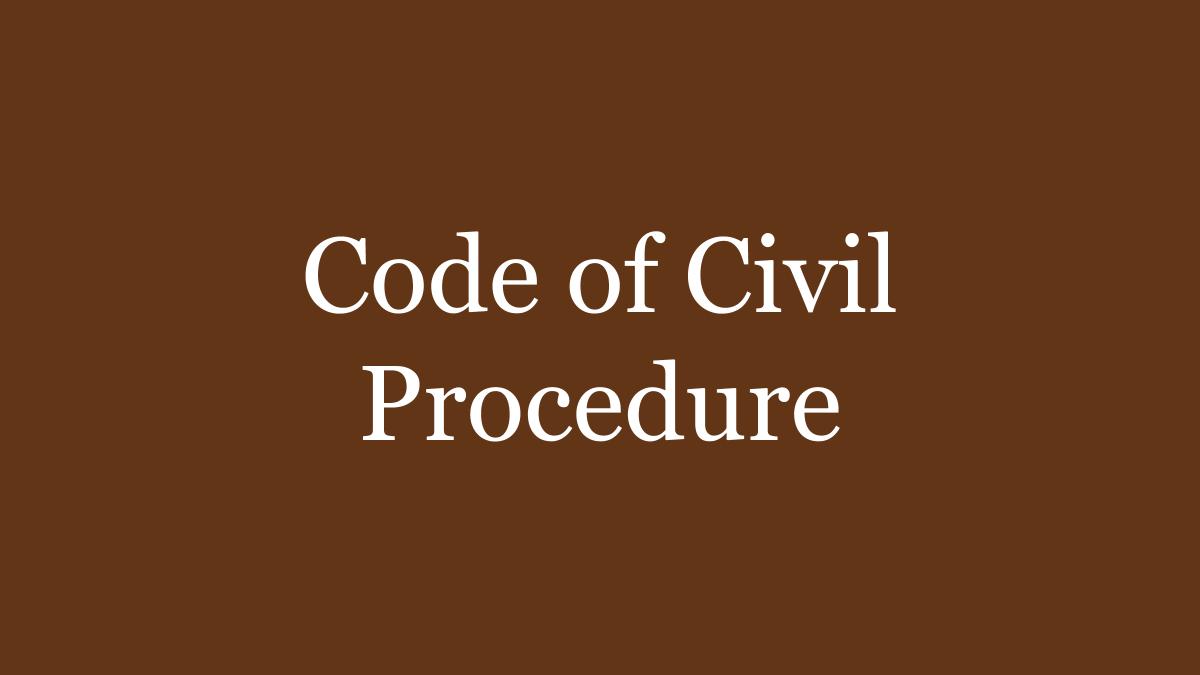Case Title: Ashiya Ummal vs S.N. Sathy
Case No: RSA NO. 247 OF 2023
Decided on: 3/1/2024
Coram: Hon’ble Mr. Justice A. Badharudeen
Facts of the Case
The plaintiff instituted the Suit for fixation of boundary, recovery of possession, and consequential injunction. During the pendency of the Suit, a compromise was entered into and accordingly, the decree was passed.
The counsel representing the 1st defendant contests the binding nature of the compromise, citing the lack of their client’s signature as a critical ground for invalidating the subsequent decree.
However, as per the learned counsel for the plaintiff 1st defendant’s husband was a signatory. Therefore, it was pointed out that 1st defendant, even after not being a signatory acted upon the compromise and received benefit out of the same. It was further pointed out that when the lawyer on behalf of the client signs a compromise without express authority to do so, the same is unlawful. Hence, the appeal must fail for the 1st defendant could not succeed in opposing the finality of the compromise.
In this case, after passing decree in terms of the compromise as on 16.1.2019, subsequently the 1st defendant filed an affidavit before the Munsiff Court on 02.03.2019 and claimed the amount in terms of clause 5 of the compromise petition. 1st defendant also did not dispute the said affidavit.
Legal Provision
Order XXIII Rule 3 of the Code of Civil Procedure, 1908 reveals the mode of recording compromise, It states that when the parties have made an arrangement to settle the dispute entirely or in part the court if it is satisfied shall pass the decree to such effect and record the same. The agreement should be legal, in writing and signed by the parties.
Issues
- Whether a challenge against a compromise decree is permissible by way of an appeal?
- If a party, who did not sign a compromise, if acts upon the same subsequently, can he avoid the compromise decree thereafter merely on the ground that he did not put his signature in the compromise?
Court Analysis and Decision
With reference to the decision of the Apex Court in Prasanta Kumar Sahoo v. Charulata Sahu, [2023 (2) KLT 625 (SC)], it was clear that when the compromise is not signed by a party and signed by the concerned lawyer alone, without any express authority or without special vakalatnama executed in favor of the Advocate to sign in the compromise, the compromise signed by the Advocate for and on behalf of his client is unlawful.
In order to prevent the menace of multiplicity of litigations, Rule 3 of Order XXIII C.P.C. was amended. The Amendment Act inserted a requirement that all lawful agreements or compromise would be in writing and signed by the parties, to enable the court to satisfy itself about the authenticity of the compromise/agreement. The proviso empowers the court by whom a compromise decree was passed to determine the legality of the compromise, so arrived at between the parties.
The Apex court in Banwari Lal v. Smt. Chando Devi [1993 (1) SCC 581] : [AIR 1993 SC 1139]
categorically held that a party challenging a compromise decree can file an application under the proviso to Order XXIII, Rule 3 C.P.C. before the same court by which the said decree was passed.
The recent legal amendments under Order 23, Rule 3A have reshaped how parties can challenge a recorded compromise decree. While direct appeals or separate lawsuits are now off the table, a new path emerges through appeals against the final decree itself. This allows disgruntled parties to indirectly raise concerns about the compromise’s validity, essentially questioning the legitimacy of the entire process leading to the final judgment. This shift acknowledges the potential for disputes within the supposed agreement, ensuring legal avenues remain open, albeit subtly different from before.
The legal principle of estoppel precludes the 1st defendant/appellant from contesting the validity of the compromise agreement despite the absence of her signature. Having actively participated in the execution and reaped the benefits of the compromise, evidenced by the actions undertaken through her lawyer and the affidavit (R1.D), the appellant is estopped from revoking her consent. Consequently, the compromise binds the appellant, and her appeal is dismissed. Kerela High court held that The compromise shall bind the defendant, because she gave consent and acted upon it
“PRIME LEGAL is a full-service law firm that has won a National Award and has more than 20 years of experience in an array of sectors and practice areas. Prime legal falls into the category of best law firm, best lawyer, best family lawyer, best divorce lawyer, best divorce law firm, best criminal lawyer, best criminal law firm, best consumer lawyer, best civil lawyer.”
Written by- Bhawana Bahety


